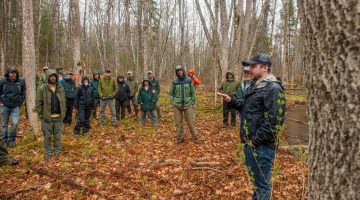Morning Ag Clips reports on UMaine research showing more Maine rural youth want to stay rural
Morning Ag Clips featured a study co-authored by University of Maine’s Jessica Leahy, professor of human dimensions and natural resources at the School of Forest Resources, showing that when it comes to keeping rural youth in forested rural communities — like the ones prevalent throughout Maine — fostering connections to the land and community may […]
Read more
